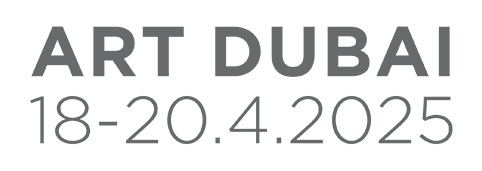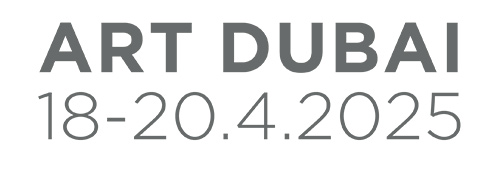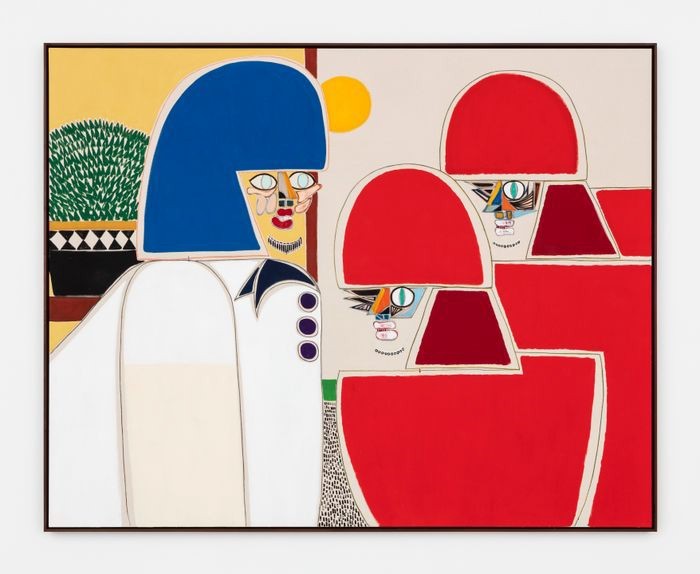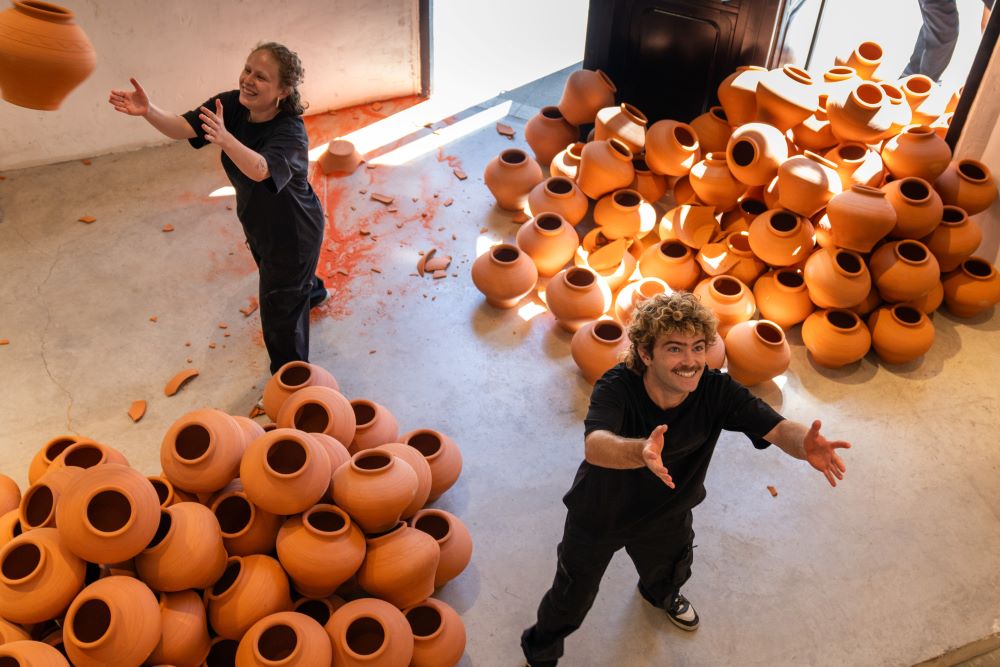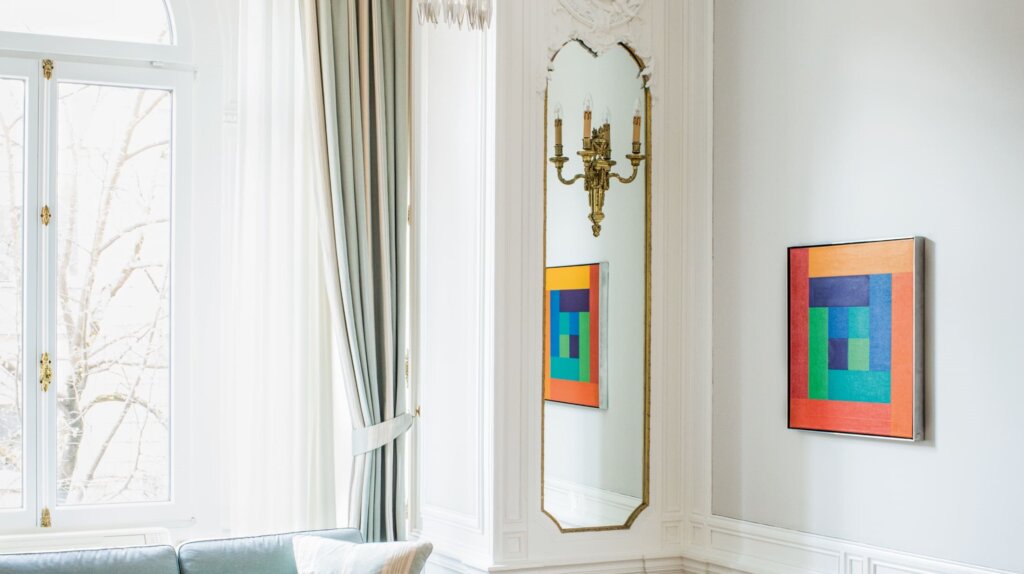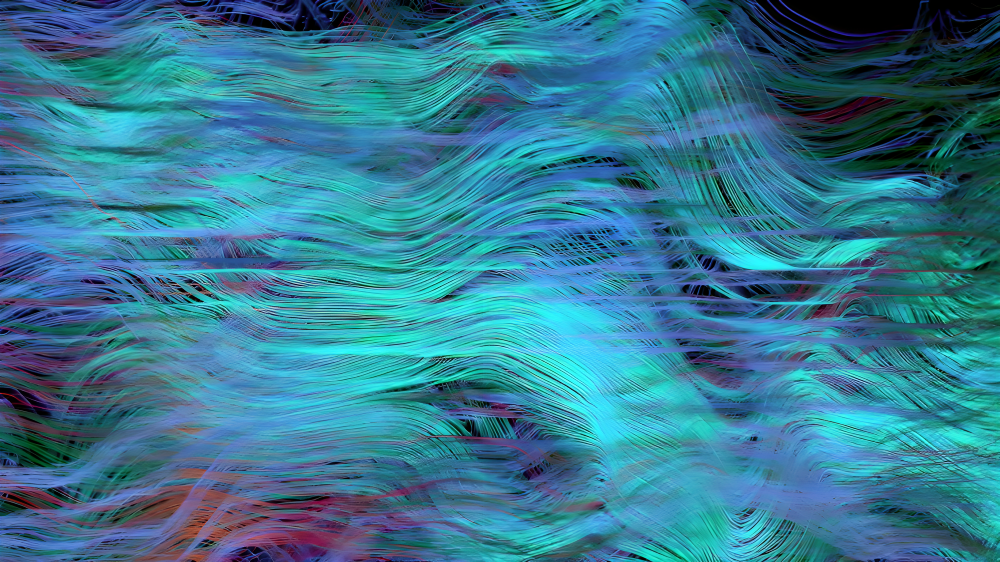
Many people dream of living forever – and many of us are living much longer than ever before. As science and technology develop rapidly, the trend toward “extended longevity” – or living longer – is bringing up fascinating questions about the social, economic and health consequences of this phenomenon. The Swiss wealth management group Julius Baer will present its latest art commission as part of its NEXT initiative at Art Dubai 2024, exploring megatrends across arts, science and technology, including extended longevity and artificial intelligence (AI).
The immersive, digital installation by multidisciplinary artist Krista Kim entitled ‘Heart Space’ مساحة القلب will visualise each visitor’s unique heart rhythm in real-time and display it across a dynamic LED canvas. The work is intended to put forward the concept of “oneness”, with fair participants coming together to create an inwoven social fabric: a community. Here, Dr. Damien Ng, a Research Analyst with Julius Baer’s Next Generation Investment team looking at offering investment solutions with a clear thematic focus, and Krista Kim discuss how digital advancements are changing our lives and how immersive experiences can create a profound sense of interconnectedness.
Our lifestyles are changing rapidly as new technological innovations are developed. What are the big shifts that we are witnessing and what part does art play within them?
Dr. Damien Ng: The ushering-in of social media platforms, along with increasingly advanced smartphones and tablets, means that an individual’s life is increasingly centred around these AI-powered innovations. Our lifestyle has been fundamentally transformed by an increasingly digital world, shaping the way we access news and communicate with others in private and professional settings. According to the online data reporting company DataReportal, the world is spending more time on social media like TikTok and Youtube. As AI continues to seep into our daily lives, it also changes how we view art and how artists can leverage novel technologies to create new works.
“Our lifestyle has been fundamentally transformed by an increasingly digital world. As AI continues to seep into our daily lives, it also changes how we view art and how artists can leverage on novel technologies to create new creative art works.”
Krista Kim: The confluence of AI, the metaverse and blockchain technology constitutes profoundly transformative forces accelerating in impact over time. We are witnessing seismic shifts across the domains of labour, leisure and interconnection. The world will likely be wholly unrecognisable within the next decade.
Art has an essential role in fostering a more humane orientation towards these emerging technologies. My Techism Manifesto underscores the importance of a collaborative movement between art and technology – one that upholds universal humanity across our increasingly digital culture. Art can serve to critique the more isolating or extractive effects wrought by constant digital engagement, as well as redefine our relationship with technology so that it elevates our collective well-being, health and cognition.
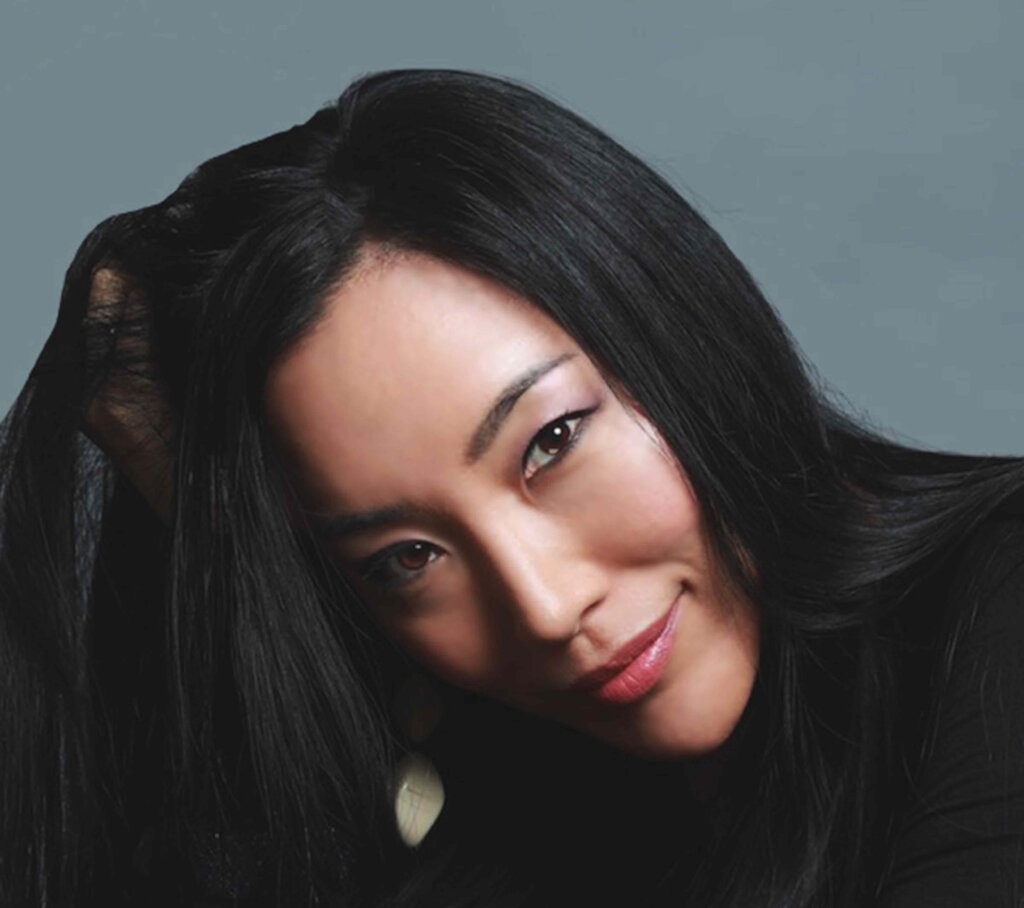
Krista Kim, Julius Baer’s Commissioned artist for Art Dubai 2024. Courtesy of Julius Baer
Immersive experiences are increasingly popular with audiences today – why do you think this is?
KK: Immersive art removes barriers between the audience and the work. No longer passive viewers, they co-create and interact as they move through pieces. This sparks wonder and delight. We feel dissolved into the art. From an artistic perspective, immersive work also captures communal spirit. Strangers connect in real time and space, present together in an experience. This oneness is profoundly moving.
DN: From the perspective of future health, digital innovations address workforce shortages, bring healthcare closer to the patients, and improve care delivery. According to the 2023 Future Health Index by Philips, nearly 70% of healthcare leaders across 14 countries reportedly state that virtual care will have the most influential effect on improving care. The outcome corroborates a 2023 study by McKinsey Health Institute that one in five adults utilise digital mental health programmes compared to one in four using digital wellness apps, with higher user rates in countries like China, Egypt, India, and Saudi Arabia than countries like Italy and France.
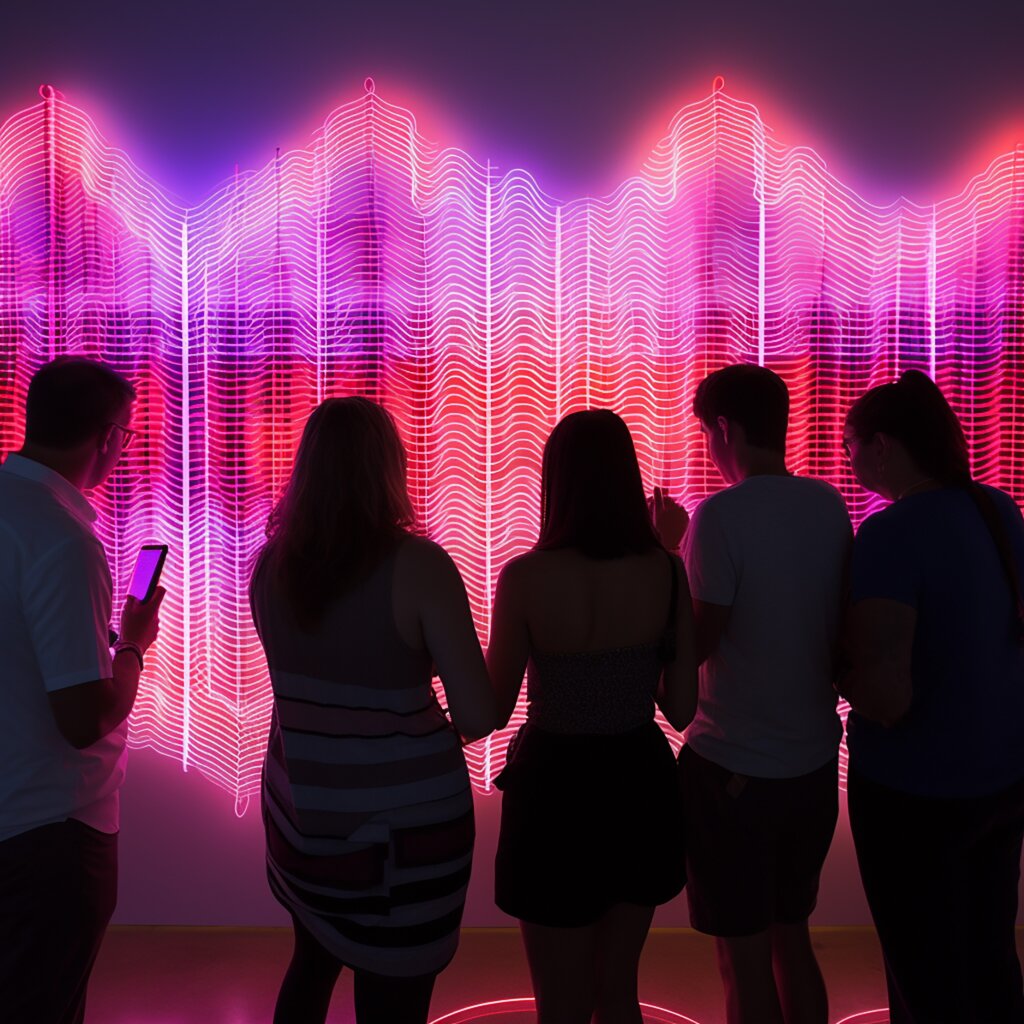
Krista Kim. Heart Space, 2023. Installation view, Still. Courtesy of the artist and Julius Baer
“Oneness” is a central theme of Heart Space – how important do you think a sense of collective community is to our lives?
KK: A sense of community is deeply important for human fulfilment, yet technology often impedes rather than nourishes this primal need. We require immersive experiences to rekindle humanity and connection in this fragmented landscape.. We need togetherness for longevity.
Throughout history, art and culture, we see shared rituals, stories and environments to congregate in oneness. Heart Space weaves an enveloping social tapestry where visitors merge into one biometric living artwork. Bathed in symbiotic algorithms of light and colour, heartbeats synchronise and strangers connect in the beauty of togetherness. Working on this with my collaborators was a co-operative creative process – it is a shared labour bearing the fruit of togetherness.
I believe the convergence of AI, the metaverse and blockchain can help us overcome polarisation aggravated by algorithms that isolate us on social media. Technology should be inclusive and global – not just amplify echoes of what we already believe or consume. Creative culture cultivating communities beyond confirmation bias may prove civilization’s most urgent work.
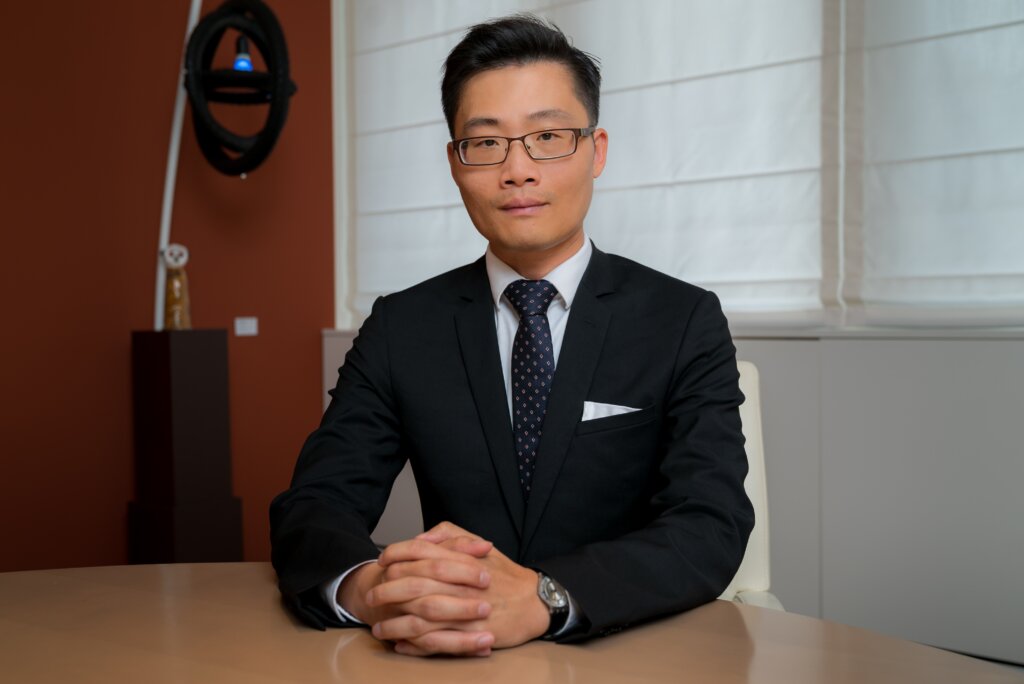
Dr. Damien Ng, Next Generation Research Analyst at Julius Baer. Courtesy of Julius Baer
DN: The importance of belonging to a community for healthy living is emphasised in the Netflix documentary Blue Zones: Living up to 100 (2023). Widely referred to as the world’s longevity hotspots, “blue zones” are home to a higher national share of centenarians. They include Ikaria (Greece), Loma Linda (California), Nicoya (Costa Rica), Okinawa (Japan), Sardinia (Italy) and Singapore. Some of the characteristics shared among the blue zones include belonging to communities and social circles that support healthy behaviours. In the case of Singapore, for instance, through a community network of volunteers and organisations, the authorities actively reach out and care for frail elderly adults, who are socially isolated or have limited access to social, financial and medical resources.
Screens and the digital realm are often considered as having a negative impact on our lives. In what ways can we care and improve our wellbeing?
DN: With the permeation of technologies into our daily life, such as smartphones and social platforms, we live in an age where we are spending extended periods of time staring at screens and being reachable at all times. These lifestyle habits adversely affect our health, our physical and mental wellbeing. While the younger generation of consumers are more likely to report the adverse impact of social media on their mental wellbeing, we also must not forget that elderly adults, for reasons due to digital illiteracy, stand at higher risk of getting marginalised by fast-paced digitalisation, aggravating the feeling of loneliness.
KK: Along with mindfulness practices, creative engagement helps counteract these troubling trends. Artmaking serves as nourishment; a restorative experience. My meditative art installations aim to provide visitors a break from distraction – to feel centred, and be fully present with oneself and others.
Tailored innovation presents promising possibilities too, for example, by developing specialised apps and metaverse spaces designed for therapeutic outcomes, guided by research insights. I am exploring these concepts as an artist and as the CEO of 0Studio.ai, a creative studio pioneering mental health and wellness in the metaverse. With wisdom and care, technology could help support mental health.
“Immersive art enthrals audiences by removing barriers between them and the work. No longer passive viewers, we co-create and interact as they move through pieces. This oneness is profoundly moving.”
Art is always looking forward to the next big trend – what do you think the next megatrend will be?
DN: The AI revolution in healthcare is underway. After all, technology and healthcare go hand in hand. AI-powered solutions can transform healthcare, with opportunities including disease diagnosis and monitoring, clinical workflow augmentation, hospital optimisation and drug discovery. One of the next megatrends can be the use of AI to analyse complex data, interpret medical images and provide personalised nutrition interventions for individuals. AI can help clinicians make more informed decisions regarding nutritional requirements, disease prevention and management. In particular, the area of data-driven gut microbiome diagnostics and intervention, an emerging field of longevity research, could lead to breakthroughs in precision medicine in the next decade.
KK: Throughout history, property ownership has been an important pillar of individual liberty and economic mobility. As society progresses into AI, these democratic ideals apply to digital ownership and must be urgently addressed before AI achieves Automatic General Intelligence (AGI). AGI refers to a type of AI that can understand, learn and apply knowledge across a wide range of tasks to the same extent as a human being. Our post-AI landscape introduces questions about our digital identity, who controls personal data, virtual assets and online identities.
Overall, this is a pivotal conversation requiring creative and conscientious social architects. By embedding scientific advancement within ethical contexts conducting empowerment, we can guide technology to uplift rather than undermine hard-won civil liberties.
The digital and the physical will merge. As we inhabit these hybrid spaces, art and humanities will become essential – helping anchor our existence through meaning, ritual and shared understanding.The future we envision and build need not destabilise human dignity or health. With compassion and courage, the mega-trends of tomorrow could transcend the potential dangers of technology and AI.
Heart Space مساحة القلب by Krista Kim will be on view as an immersive installation outside the Julius Baer Lounge at Art Dubai from 1 – 3 March 2024.
